I am working on a combinatorial optimisation problem and realised the CPLEX is taking a significant time to run. Here is a toy example:
I am using the python API for docplex
import numpy as np
from docplex.cp.model import CpoModel
N = 5000
S = 10
k = 2
u_i = np.random.rand(N)[:,np.newaxis]
u_ij = np.random.rand(N*S).reshape(N, S)
beta = np.random.rand(N)[:,np.newaxis]
m = CpoModel(name = 'model')
R = range(0, S)
idx = [(j) for j in R]
I = m.binary_var_dict(idx)
m.add_constraint(m.sum(I[j] for j in R)<= k)
total_rev = m.sum(beta[i,0] / ( 1 + u_i[i,0]/sum(I[j] * u_ij[i,j] for j in R) ) for i in range(N) )
m.maximize(total_rev)
sol=m.solve(agent='local')
sol.print_solution()
for i in R:
if sol[I[i]]==1:
print('i : '+str(i))
Part of the output is as follows:
Model constraints: 1, variables: integer: 10, interval: 0, sequence: 0
Solve status: Optimal
Search status: SearchCompleted, stop cause: SearchHasNotBeenStopped
Solve time: 76.14 sec
-------------------------------------------------------------------------------
Objective values: (1665.58,), bounds: (1665.74,), gaps: (9.27007e-05,)
Variables:
+ 10 anonymous variables
The same I tried with an exhaustive search:
import numpy as np
import pandas as pd
from itertools import combinations,permutations,product
import time
start = time.time()
results = []
for K_i in range(1,k+1): #K
comb = list(combinations(range(S), K_i))
A = len(comb)
for a in range(A):# A
comb_i = comb[a]
I = np.repeat(0,S).reshape(-1,1)
I[comb_i,0] = 1
u_j = np.matmul(u_ij,I)
total_rev = np.sum(beta/ (1 + u_i/u_j))
results.append({'comb_i':comb_i, 'total_rev':total_rev })
end = time.time()
time_elapsed = end - start
print('time_elapsed : ', str(time_elapsed))
results = pd.DataFrame(results)
opt_results = results[results['total_rev'] == max(results['total_rev'].values)]
print(opt_results)
Output:
time_elapsed : 0.012971639633178711
comb_i total_rev
23 (1, 6) 1665.581329
As you can see the CPLEX is 1000 times slower than the exhaustive search. Is there a way to improve the CPLEX algorithm?
